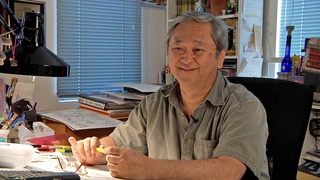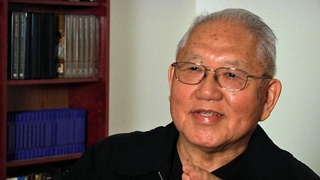Interviews
Growing up "American"
I mean, well as soon as we started school I was an American. I was... we did the Pledge of Allegiance to the flag and everything was American. Well I mean the Japanese obviously part of it was mainly my father's side. We used to go to the church in San Jose and that was our religion. But we were... even if it were an isolated community and living on a farm on your own...We were Americans, yeah. And I made friends in grammar school. And we, you know, and we never sort of like did anything together because I was always working.
But yeah, it was when I was in Sacramento... The only time I feel I was not American is when I went to Sacramento. And it was very much a, uh, prejudice or a discrimination. You know, and it was really quite, you know, strange I thought then. I felt peculiar because I was born there and so...well I didn't look like the Americans so I knew I was different, you know. But uh but to be... having to mix with that community you would feel you were accepted. Because there were Black communities, and Mexicans, and everything, you know. But uh we were suddenly complete strangers. We were foreigners you know.
Date: June 29, 2012
Location: California, US
Interviewer: Chris Komai, John Esaki
Contributed by: Watase Media Arts Center, Japanese American National Museum
Explore More Videos














Postwar school-life
(b. 1930) Half Japanese and grew up in both Japan and the United States.

On Challenging Institutions
(1938-2020) Japanese American attorney and civil rights activist
